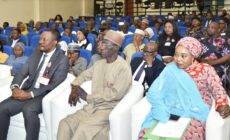By: *M Bilal Lakhani*
Is this real life or is this fantasy? Billions in aid pouring from the Saudis and Emiratis, with the Qataris and Chinese playing on as a follow-up act. Pakistan driving the peace process in Afghanistan, forcing a president like Trump to write a letter asking for our sincere help.
Throwing Modi’s ‘isolate Pakistan’ strategy into the dustbin of history, with a surgical strike to open hearts across the border, by allowing Sikh pilgrims to visit their holiest site in Pakistan.
The PTI may be struggling to get their act and messaging together on the economy and police reform but they’re hitting boundary after boundary in the foreign policy space.
If Imran Khan will go down in history as one of the greatest leaders to have ruled Pakistan, it won’t be because of his political acumen, economic policy or social justice reform. It’s his decisions in the foreign policy space that will be remembered and determine the future for generations to come in Pakistan and around the world.
In the next five years, America will withdraw from Afghanistan, triggering a new geo-political and security calculus in the region.
Meanwhile, a rising superpower, China, and a militarily strong but economically weakening superpower, America, will fight for global dominance with Pakistan being a primary playground for their power games. How Imran Khan leads Pakistan through these generational shifts in global power will determine his legacy.
First things first though. They say civilians don’t make foreign policy in Pakistan. In 2018, political leadership changed in Pakistan but military leadership has stayed constant.
And yet, there’s been a dramatic spring in Pakistan’s foreign policy steps after the elections. How do we explain the inexplicable? Perhaps pivoting from a civilian government that enjoyed low trust from the security establishment to one that enjoys high trust has allowed all the power brokers to focus on what’s best for the country versus point scoring for a domestic audience.
A second factor is that Pakistan’s long and bloody bet on Afghanistan is finally beginning to pay off.
We had calculated that America would lose interest in Afghanistan, with the persistent loss in blood and treasure. Despite my personal critique of this stance, it turns out that Pakistan’s security calculus was correct on Afghanistan.
After 18 bloody years of conflict, an inflection point is fast arriving and Pakistan holds all the right cards. Trump is ready to leave Afghanistan and Pakistan holds all the leverage, with India’s all eggs in one Afghan government basket scrambling to create a plan B.
Meanwhile, the aid from the Saudis and Emiratis are allowing Asad Umar, the Finance Minister, to negotiate a hard bargain with the IMF. This is something we have never done in our 70-year history. It’s easy to take money from the IMF in return for giving up sovereignty in our economic policy decision-making.
The path that the PTI is taking is far more daunting but rewarding in the long term. The latest mini-budget, presenting relief and industrialisation incentives, wouldn’t be possible if we had entered an agreement with the IMF. We have a real chance at breaking our cycle of begging and borrowing.
The real coup that Imran Khan and only Imran Khan can deliver is peace with India. A civilian government that enjoys a high level of support from the security establishment is the only power that can negotiate an end to our cold war with India.
When a new government takes over in India, it will be a once in a generation moment to begin paradigm changing talks. It wouldn’t hurt for cricketing ties to resume as a precursor to broader ties between the countries. Pakistan could tour India to break the ice.
In short, the PTI is off to a thumping start in the foreign policy space. They’re projecting an image of a country which is friendly with its neighbours and wants to pursue a constructive role to establish peace in the region.
A focus on economic diplomacy is paying dividends which can be leveraged to push through a real reform of the economy. Cheers to Imran Khan for being an architect of the rise and rise of Pakistan in the region.

























